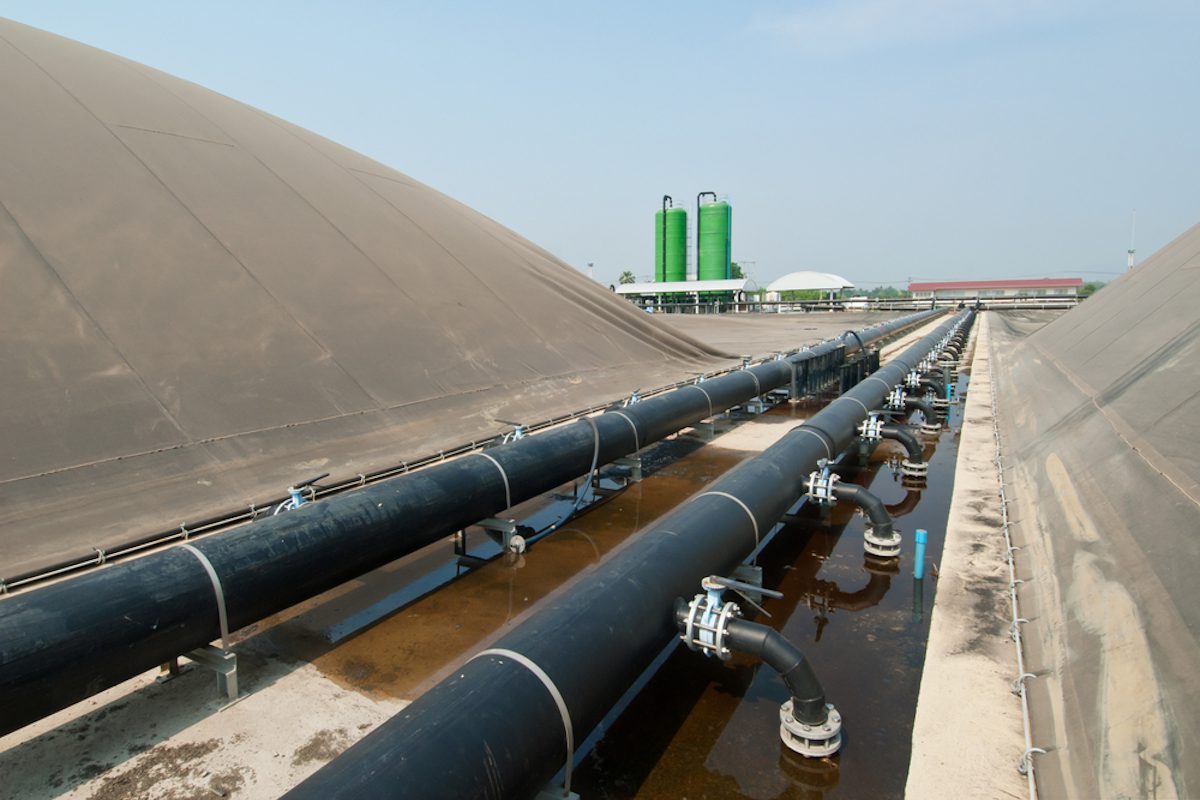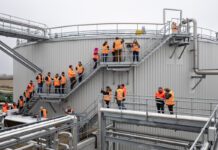
Local authorities are legally required to introduce separate food waste collections from 2023. The UK government has said AD is the preferred treatment for this resource, to recover valuable renewable energy, fertiliser and increasingly CO2, and prevent methane emissions.
To maximise the opportunities presented by this transition, the Anaerobic Digestion and Bioresources Association (ADBA) has prepared a Biogas Briefing to show how the integration of energy and waste infrastructures can help meet net zero targets, improve air quality, and substantially cut costs to councils.
The briefing, entitled Food Waste Recycling Through Anaerobic Digestion (AD); A Net Zero Lever for Local Authorities, will be launched through a webinar held as part of the government-backed UK Green Infrastructure Week. The event presented as “A New Era for Waste Management Infrastructure to deliver Net Zero and Clean Air Goals,” will take place online on 27th April (10:30-11.30 BST).
An expert panel will consider how the development of an integrated energy and waste infrastructure can deliver triple value for municipalities: helping balance economic pressures, environmental expectations, and social benefits. It will also look at the legal and contractual considerations for local authorities.
Confirmed speakers are:
(Chair) Charlotte Morton, Chief Executive, ADBA
Leanne Williams, Lead Analyst, Environment & Agriculture, ADBA
David McKee, CTO, Bio Capital
Brian Farrell, Partner, Energy & Waste, Ashfords
Donna Cox, Waste and Recycling Manager, Bracknell Forest Council.
“Anaerobic digestion is at the heart of a circular waste management system that can bring invaluable economic, environmental and social benefits for local authorities,” says ADBA Chief Executive Charlotte Morton. “The mandating of separate food waste collections by 2023 in England means that municipalities are presented with a great opportunity to reap the benefit of AD technology – this is what the webinar and the ADBA report will demonstrate and that makes it a must attend for all stakeholders in the food waste recycling field.”
The ADBA report is sponsored by Bio Capital and Ashfords, who commented as follows:
Peter Sharpe, CEO, BioCapital: “In the coming years, new regulations placed upon local authorities for the separate collection of food waste will significantly increase the amount available for treatment by anaerobic digestion. These new regulations will sit alongside increased local authority targets for recycling and national, binding targets, for reduction of greenhouse gas emissions as we transition to a Net Zero economy. The webinar couldn’t come at a better time to highlight the need for the AD sector and local authorities to work together on meeting these objectives.”
Brian Farrell, Partner and head of the Head of the Energy & Waste Sector, Ashfords LLP: “Anaerobic digestion (AD) is an extremely well-developed technology, which is an important part of the energy mix in the UK. With the separation of food waste, the UK will have the opportunity to access a readily available source of biogas, assisting with both the decarbonisation agenda and the UK’s energy security and independence. It would be great to see more AD assets being built to help us maximise this opportunity.”
UK Green Infrastructure Week highlights the technologies that will be used to deliver the biggest gains in the UK’s global transition to net zero. Held from 25th until 29th April, it will feature a series of events delivering insight and commentary for the whole ecosystem of people and organisations involved with the green infrastructure. ADBA’s webinar will cast a light on the potential of AD to contribute to the development of that infrastructure as a waste management and decarbonisation technology.
Registration is free.







